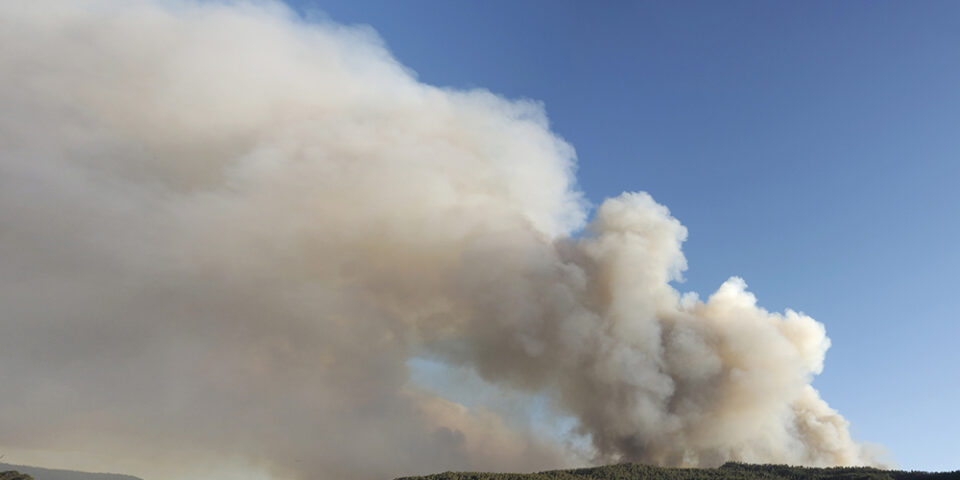How to combat poor air quality due to wildfires and more
As the number and seriousness of wildfires increase throughout North America, more and more people are finding themselves facing air quality warnings. But what exactly makes air quality poor or hazardous, and what can you do to keep your family safe and healthy? Pulmonologist and critical care specialist Matthew Varner, DO, offered some advice on how to combat poor air quality due to wildfires, pollen or pollution.
What causes poor air quality?
Recent problems with air quality have been caused by wildfires. Smoke from fires rises into the atmosphere, where the wind moves it from its original location to affect places far away.
“While pollution within cities can also lead to warnings for the especially vulnerable to stay indoors and for everyone to minimize outdoor labor, wildfire smoke is more toxic than so-called ‘normal’ air pollution and can stay in the air for weeks at a time,” said Dr. Varner.
What health problems can poor air quality cause?
Depending on the contents of the smoke or pollution in the air, you or your loved ones may experience a variety of different symptoms as you breathe and go about your regular day. Symptoms of poor air quality can include:
- Headaches
- Dizziness
- Difficulty breathing
- Fatigue
- Irritation of the throat, eyes and skin
“Inhalation of smoke from wildfires has also been linked to higher rates of heart attacks, strokes and increased emergency room visits for respiratory conditions like asthma or COPD,” said Dr. Varner. “It has also been linked to health problems in pregnant people, and it raises the risk of developing lung and brain cancers when compared to people who haven’t been exposed to the smoke.”
Who is most vulnerable to getting sick because of poor air quality?
As with many other health issues, those who are most at risk include elderly and older adults, pregnant people, infants and children and those who already have weakened immune systems.
“We also caution people who are treating ongoing pre-existing lung or heart conditions, like heart disease, asthma or COPD, that they face a greater risk of health problems as a result of wildfire smoke and air pollution,” said Dr. Varner.
How can you keep your family safe and healthy during poor air quality days?
Dr. Varner’s advice on how to prevent the health effects of poor air quality included:
- Monitor air quality within your location using local news outlets or larger sites like the Weather Channel.
- Limit your time outdoors as much as possible.
- Keep windows and doors closed to minimize the amount of outside air coming in.
- Keep your air conditioner set to ‘on’ and switch out your current air filters for new ones.
- Use HEPA air purifiers indoors if you have them.
- If you must go outdoors, avoid exertion or heavy physical activity.
- Wear a properly fitting N95 mask to filter the contents of the smoke out before you breathe in the air.
- Use your A/C ‘recirculation’ button within your car.
“Keep in mind that pets can also be vulnerable to respiratory or other problems as a result of poor air quality,” said Dr. Varner. “If you see air quality warnings suggesting you stay indoors, keep your pet indoors as much as possible, too.”
Find the care you need, close to home
Our primary care physicians provide well visits and everyday care when you need it with compassion and expertise.
Find Primary Care Near You

